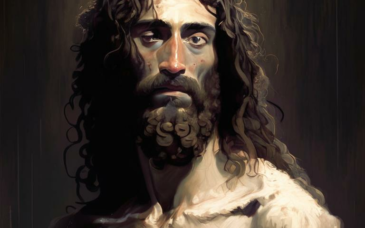Introduction
For Further Study see John the Baptist


The public ministry of Jesus begins with His baptism. Jesus travels from Galilee to the Jordan river where John the Baptist was baptising Jews coming to him for cleansing. Matthew 3:13-17; Mark 1:9-11; Luke 3:21-22 As Jesus approaches to be baptised John protests that Jesus should baptise John an indication of the sinlessness of Jesus. Two events accompany the Baptism of Jesus by John, the Holy Spirit descending upon Jesus as a dove and the voice of the father in heaven declaring that he loved his son. There is no mistake then that at the very beginning of Jesus' ministry the Trinity is involved in the redemptive purpose of Christ's coming.
Significant of Jesus's Baptism
The importance of this event can be seen in its messianic significance. This was not a secret ceremony but performed in public before the eyes of witnesses. But the question arises if John's baptism was for repentance then what did it mean for Jesus who was sinless. Why did he seek baptism at all? The answer can be found in seeing in this event, the coronation of the Messiah. Jesus baptism must not be separated from the two Trinitarian events surrounding it. As the Savior Jesus is identifying with the sinners which he represents as their substitute in providing for their redemption. John declares him the Lamb of God who takes away the sin of the world. John 1:29 To do this Jesus must identify with them in baptism. The Messianic office of Jesus is anointed by the Holy Spirit and He is officially and publicly commissioned for his redemptive work. It is interesting that the first order of business for Jesus is the temptations. The order of the kingdoms is established right at the beginning. The Kingdom of God would prevail over the kingdom of Satan.
Eventually Jesus would know the baptism of the wrath of God for sin and this baptism begins that work and points to the future baptism of judgment for sinners. This is not simply an interesting event to be read and forgotten but marks a milestone in the history of salvation. It marks the beginning of the public ministry of Jesus. This is not to say that Jesus did not know he was the Messiah before this point, or that Jesus was not the Messiah before his baptism. Jesus was always the Messiah and knew it. Matthew 1:21; Luke 1:31ff Jesus states that it was no option but a necessity. Matthew 3:15 And Jesus answering said unto him, Suffer it to be so now: for thus it becometh us to fulfil all righteousness. Then he suffered him. It was necessary for Jesus to be baptised to fulfil all last requirement of righteousness for sinners. Jesus is consecrated to his fathers mission. Jesus was without sin or need for repentance but willingly submitted to John's baptism in place of his people.
Descent of the Holy Spirit
There were three occasions when the Holy Spirit is mentioned in the ministry of Jesus. During the time of His virgin birth Luke 1:35, his baptism and then finally his resurrection. John 20:22 This was not the start of Jesus remembering that he was the Messiah, but rather a public declaration that Jesus was the Messiah. The Holy Spirit did not descend upon Jesus under His sanctifying office to cleanse Jesus of sin, Jesus was sinless. This event would forever impress upon the minds of the viewers that the ministry of Jesus and the Holy Spirit were inseparable.
The symbolism of the dove is significant. The Old Testament never compares the Holy Spirit to a dove. This then is a unique symbol. Where the Old Testament prophets were anointed by oil to represent the Holy Spirit, Jesus was anointed by the Holy Spirit Himself. The Holy Spirit would come and rest permanently upon Jesus and accompany Him throughout His ministry as a demonstration of the solidarity of the trinity in mans salvation.

